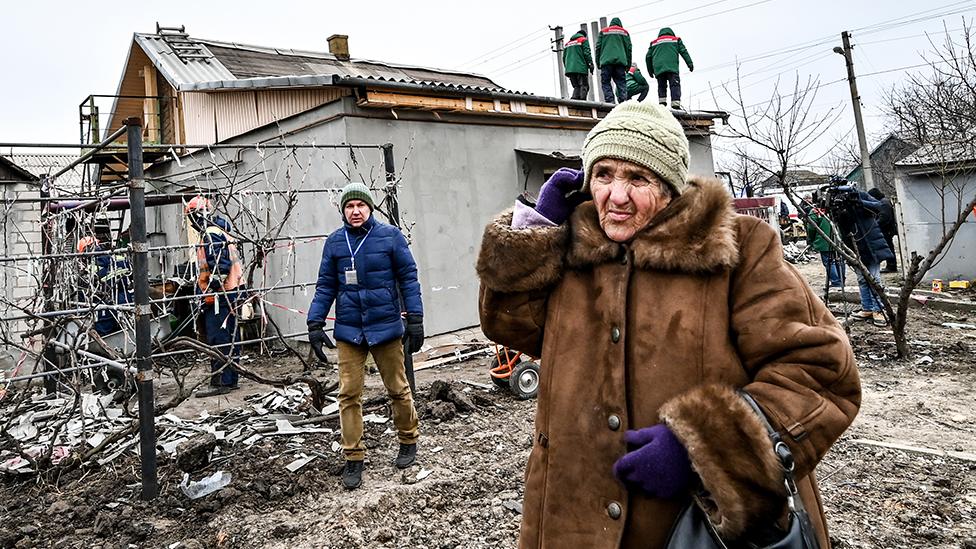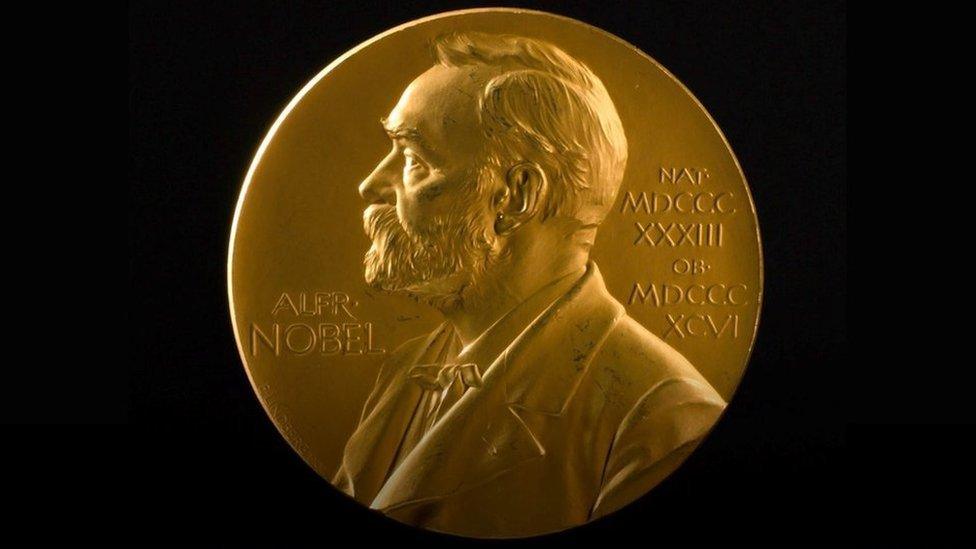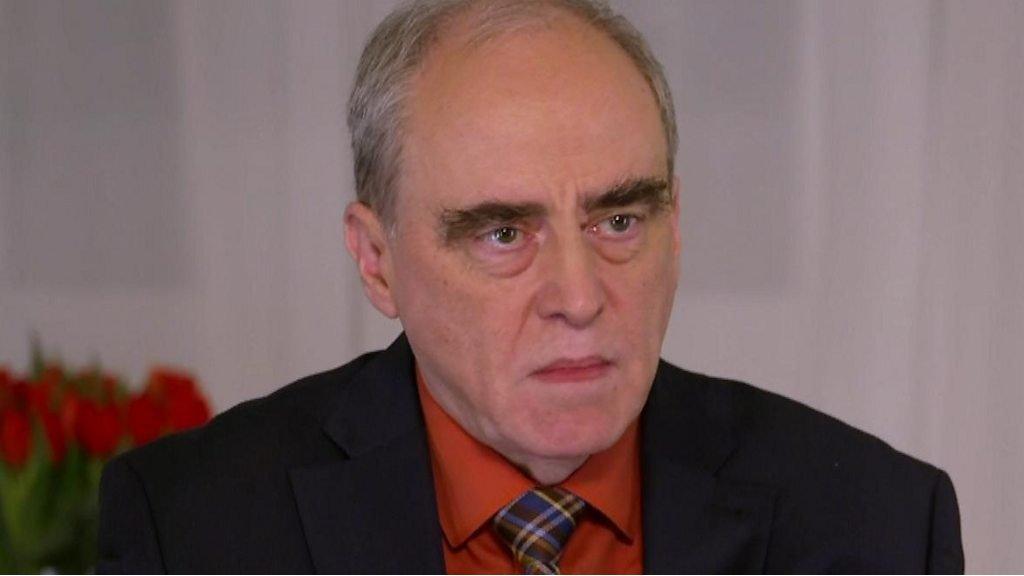Ukraine war: Russia and Iran invited back to Nobel Prize banquet
- Published

People work during the response effort to a Russian rocket attack in Zaporizhzhia, southeastern Ukraine, in January
Russia and Belarus have been invited back to Stockholm's Nobel Prize banquet after being left out last year because of the Ukraine war, the Nobel Foundation says.
Iran has also been invited back to the event in Sweden's capital after not being allowed to attend last year.
The foundation said it sought to include even those who did not share the values of the Nobel Prize.
One Swedish MEP called this year's invites "extremely inappropriate".
The leader of the anti-immigration Sweden Democrats party, Jimmie Akesson, was also invited for the first time this year but said he was too busy to attend.
Five of the six Nobel Prize ceremonies take place in Stockholm each year, while the Nobel Peace Prize is awarded in Oslo.
Last year, the Nobel Foundation said ambassadors from Russia and Belarus would not be invited "due to Russia's invasion of Ukraine". Belarus is a key ally of Russia and its leader, Alexander Lukashenko, has backed Russia's "special military operation", as it calls the invasion of Ukraine in February of last year.
Iran was also not invited last year. Tehran has long faced criticism for its human rights record. The UN has said the government there could have committed crimes against humanity in its crackdown on protests last year.
Vidar Helgesen, executive director of the Nobel Foundation, explained the decision to invite the countries back: "It is clear that the world is increasingly divided into spheres, where dialogue between those with differing views is being reduced.
"To counter this tendency, we are now broadening our invitations to celebrate and understand the Nobel Prize and the importance of free science, free culture and free, peaceful societies."
Swedish Liberal MEP Karin Karlsbro accused the Foundation of setting a "dangerous precedent" by "giving a green light to inviting Russia to a glamorous party while missiles fall over Ukrainian cultural centres and murder children."
Speaking to Swedish public radio, she called Russia, Belarus and Iran "rogue states" that "oppress their citizens, wage war and terror against their own people and neighbouring countries".
"They're countries that don't subscribe to democratic values in any way," she said. "There's a war in Europe. [They take] an incredibly naive position. It undermines the cohesion we need throughout society."
Swedish political party leaders are traditionally invited to the banquet but Sweden Democrats leader Jimmie Akesson was snubbed in the past.
His party was founded by Nazi sympathisers and had been shunned by the mainstream for decades. It won around a fifth of votes in last year's general election.
Mr Akesson said he would not be attending. "Unfortunately I'm busy that day," he wrote on Facebook.
Related topics
- Published8 October 2021

- Published10 December 2022
